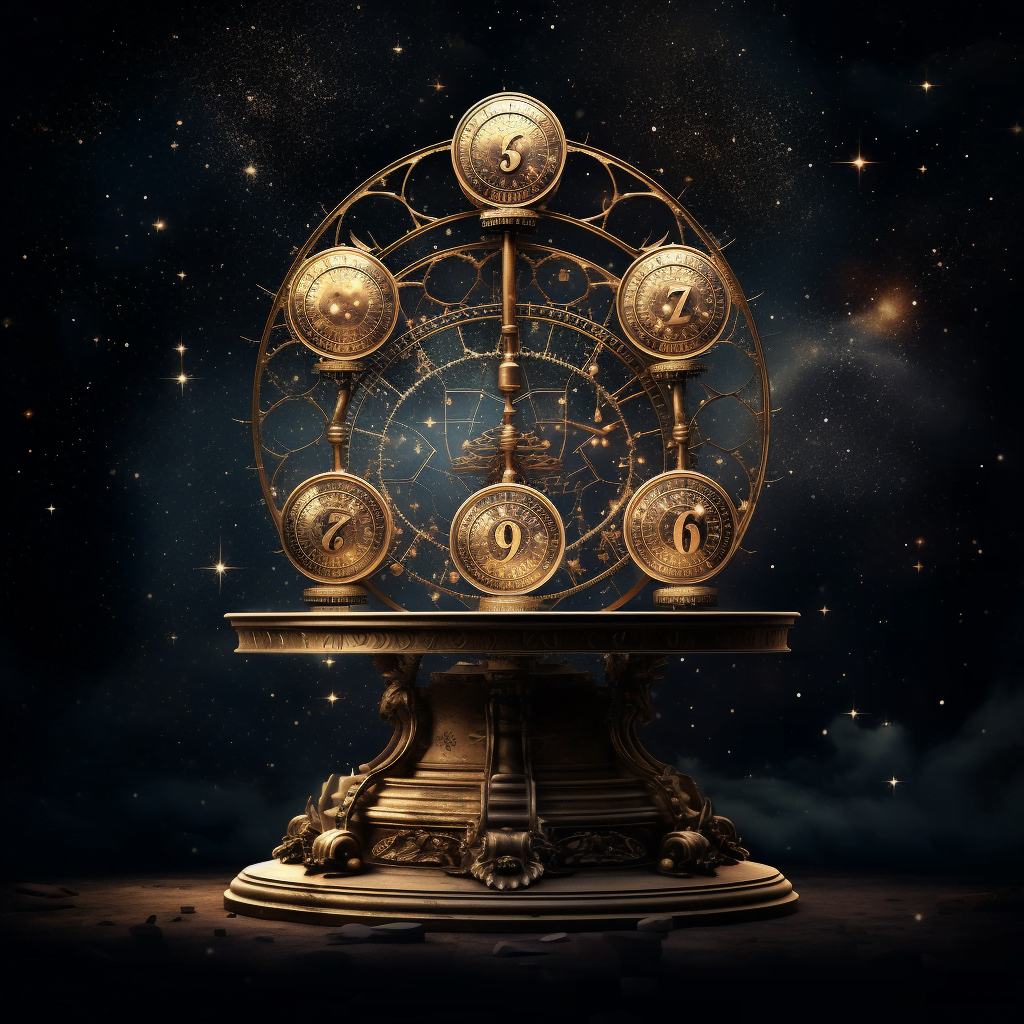Astrology has always been a topic that sparks curiosity and intrigue. But when it comes to trusting this ancient practice, the answer may not be as straightforward as it seems. While some find solace in the predictions and insights provided by astrology, others remain skeptical, questioning its validity and scientific basis. In this article, we will explore the debate surrounding astrology and offer perspectives to help you decide if trusting it is indeed worth your while. So, whether you’re a firm believer or someone on the fence, buckle up as we navigate through the fascinating world of astrology and unravel its mysteries.
History of Astrology
Ancient origins
Astrology, in its earliest forms, can be traced back to ancient civilizations such as the Babylonians and the Egyptians. These ancient societies believed that the movements of celestial bodies, such as the stars, planets, and the moon, held great influence over human affairs. They developed intricate systems to observe and interpret the patterns of these celestial bodies, relating them to various aspects of human life.
Development in different cultures
Throughout history, astrology has been shaped and developed by different cultures across the globe. The Greeks, for example, integrated astrology with their mythology, assigning each planet and zodiac sign a deity and attributing specific characteristics and energies to them. In India, astrology is deeply ingrained in its Vedic traditions, where it is considered a science and is used for making important life decisions.
Evolution over time
Over time, astrology has evolved and adapted to the changing cultural and societal landscape. The development of more advanced astronomical tools and scientific understandings has influenced astrological practices, resulting in refined calculations and interpretations. While some traditional astrological practices have endured through the centuries, new branches, like psychological astrology, have emerged, focusing on the inner workings of the human mind and psyche.
Fundamentals of Astrology
The zodiac signs and their meanings
Astrology is centered around the twelve zodiac signs, each representing distinct personality traits and characteristics. These signs, including Aries, Taurus, Gemini, and so on, are believed to be influenced by the positions of the planets at the time of a person’s birth. Each zodiac sign is associated with different elements, such as fire, earth, air, or water, which further contribute to shaping an individual’s temperament and disposition.
The influence of celestial bodies
Astrology interprets the relationships and alignments between celestial bodies, including the sun, moon, planets, and asteroids, as having a direct impact on human life and personality. The positions of these celestial bodies at the time of a person’s birth are believed to shape their individual traits, behavioral tendencies, and even their future experiences.
Astrological houses and their significance
In addition to zodiac signs and celestial bodies, astrology divides the birth chart into twelve houses, each representing different areas of life, such as career, relationships, or spirituality. The placement of planets within these houses further refines their influence on specific aspects of a person’s life. By analyzing the interaction between the signs, planets, and houses, astrologers aim to provide insights into various facets of an individual’s life journey.
Claimed Accuracy of Astrology
Individual horoscopes
Astrologers create individualized horoscopes by calculating the positions of celestial bodies at the time of a person’s birth. These horoscopes are believed to offer personalized readings and predictions about different aspects of one’s life, including career, relationships, and personal growth. However, the accuracy of these predictions has been a subject of debate among scientists and skeptics.
Prediction of personality traits
Another significant aspect of astrology is its claim to predict an individual’s personality traits based on their zodiac sign. Each zodiac sign is associated with certain characteristics, and astrologers argue that individuals born under these signs are likely to exhibit those traits. However, scientific critics argue that personality is a complex interplay of genetics, environment, and personal choices, and cannot be solely determined by astrological factors.
Compatibility in relationships
Astrology also offers insights into the compatibility between individuals, particularly in romantic relationships. By examining the zodiac signs and birth charts of two people, astrologers believe they can determine the compatibility or potential conflicts between them. This analysis considers factors such as elemental compatibility, planetary aspects, and the overall compatibility between the two individuals’ birth charts.
Forecasting future events
Astrology claims to provide glimpses into the future by analyzing celestial alignments and their potential impacts on individuals and societies. Various astrological techniques, such as transits and progressions, are used to make future predictions. However, the scientific community argues that the accuracy of these predictions is questionable, as they lack empirical evidence and are often based on subjective interpretations.
Scientific Criticisms
Lack of empirical evidence
One of the main criticisms leveled against astrology is the lack of empirical evidence to support its claims. The scientific method relies on empirical data, experimentation, and repeatable results, which astrology often fails to provide. Critics argue that astrological predictions and readings are based on cherry-picked anecdotes rather than rigorous scientific analysis.
Confirmation bias
Another critical factor in evaluating astrology’s accuracy is the role of confirmation bias. Confirmation bias refers to the tendency to seek out and interpret information in a way that confirms pre-existing beliefs. In the context of astrology, individuals who firmly believe in its efficacy may be more likely to focus on instances that appear to validate astrological predictions, while disregarding or rationalizing contradictory outcomes.
Barnum effect
The Barnum effect, also known as the “Forer effect,” is a psychological phenomenon in which individuals believe generalized statements or descriptions about themselves to be highly accurate, despite their vagueness. Astrology often relies on broad and general statements that can apply to a wide range of individuals, leading them to perceive astrological readings as specifically tailored to their unique personalities.
Misinterpretation of results
Critics argue that astrology’s lack of standardized interpretation and its reliance on subjective judgment can lead to misinterpretation of results. The same birth chart can be analyzed differently by different astrologers, potentially leading to contradictory readings. This subjectivity raises questions about the reliability and consistency of astrological analysis.
Psychological Perspective
Barnum effect and self-fulfilling prophecies
From a psychological standpoint, astrology can be understood through the lens of the Barnum effect. When individuals receive positive, personalized readings that resonate with them, they may internalize these descriptions and strive to fulfill them. This self-fulfilling prophecy can lead individuals to act in ways that align with their astrological predictions, ultimately influencing their behavior and shaping their self-perception.
Validation and subjective interpretation
Astrology often provides individuals with a sense of validation and self-understanding. The belief that celestial bodies influence their lives can offer a comforting explanation for the events they experience. Subjective interpretation plays a significant role, as individuals tend to focus on and give more weight to the statements and predictions that resonate with their own experiences, while disregarding contradictory information.
Formation of beliefs and identity
Belief in astrology can also play a role in forming an individual’s sense of identity and worldview. For some, astrology serves as a framework for understanding themselves and their place in the world. It can provide a sense of belonging and a tool for self-reflection. However, it is important to recognize that personal beliefs, including astrology, should be critically examined and balanced with scientific evidence and rational thinking.
Cultural and Societal Impact
Popularity and acceptance
Astrology has gained immense popularity and acceptance in various cultures worldwide, with millions of individuals seeking astrological guidance and interpreting their horoscopes regularly. It has become an integral part of popular culture, with daily horoscopes featured in newspapers and online platforms. This widespread acceptance demonstrates the significance astrology holds, not only as a belief system but also as a source of entertainment and self-reflection.
Role in decision-making
In some cases, astrology holds a consequential role in decision-making processes. Individuals may consult astrologers for guidance on important life choices, such as career paths, relationships, or financial investments. The belief in astrology can offer a sense of reassurance and direction, although it is essential to consider multiple factors when making significant decisions in life.
Impacts on relationships and personal choices
Astrology’s influence extends to interpersonal relationships, as individuals often use astrological compatibility as a basis for forming romantic partnerships or maintaining existing ones. The compatibility analysis offered by astrology can affect the choices individuals make in their personal lives, potentially impacting the dynamics and longevity of relationships.
Ethical Considerations
Dependency and disempowerment
A potential ethical concern regarding astrology lies in the dependency and disempowerment it may foster. Placing too much emphasis on astrological predictions can lead individuals to rely solely on external forces rather than taking responsibility for their own actions and choices. It is important for individuals to maintain agency and consider astrology as just one tool among many for self-reflection and decision-making.
Potential manipulation and exploitation
The commercialization of astrology has led to the proliferation of fraudulent or unqualified practitioners who may take advantage of vulnerable individuals seeking guidance. It is crucial to approach astrology skeptically and be cautious of individuals who overpromise, request excessive fees, or manipulate vulnerable emotions for personal gain. Engaging with trusted, qualified astrologers can help mitigate potential risks.
Astrology vs. Astronomy
Differences in methodology
While astrology and astronomy both deal with celestial bodies, their methodologies and goals differ significantly. Astronomy is a scientific field of study that focuses on observing, measuring, and understanding the physical properties and behaviors of celestial bodies. In contrast, astrology aims to interpret the influences of celestial bodies on human lives and personalities, often employing subjective and interpretive methods.
Scientific principles of astronomy
Astronomy operates within the framework of the scientific method, relying on empirical observations, mathematical calculations, and peer-reviewed research. It utilizes rigorous techniques, such as telescopes, spectrographs, and satellites, to gather data and test hypotheses. The findings of astronomy have contributed to our understanding of the universe and continue to expand human knowledge.
Misconceptions and confusion
The distinction between astrology and astronomy is often blurred or misunderstood by the general public. Many individuals may use the terms interchangeably or assume that they are one and the same. This confusion can lead to misconceptions about the scientific validity and reliability of astrology. It is essential to distinguish between these two distinct disciplines to foster a clearer understanding of their respective roles and methods.
Personal Experience and Subjectivity
Individual belief systems
Belief in astrology often stems from personal experiences and individual belief systems. For some, astrology offers a sense of guidance, comfort, and connection to something greater than themselves. Each person’s beliefs are deeply personal and shaped by their upbringing, personal experiences, and cultural influences. It is important to respect diverse belief systems while also encouraging critical thinking and an open-minded approach to evaluating them.
Anecdotal evidence and personal stories
Many individuals who follow astrology have personal stories and anecdotes that they believe confirm its validity. These stories often involve instances where astrological predictions seemed to align with their experiences. While personal experiences hold subjective value, they do not provide conclusive evidence or negate the need for scientific rigor in evaluating astrological claims.
Alternative Explanations and Practices
Psychology and personality assessments
Psychology offers alternative frameworks for understanding personality and behavior. Personality assessments, such as the Myers-Briggs Type Indicator (MBTI) or the Big Five personality traits, provide structured models and evidence-based analysis of personality traits and behavioral tendencies. These models incorporate a more scientific approach that is based on empirical research and statistical analysis.
Numerology and tarot readings
Numerology and tarot readings are additional belief systems that offer insights into personal characteristics and future events. Numerology assigns numerical values to letters and dates of birth to uncover underlying meanings. Tarot readings involve interpreting symbols and cards to gain insight into a person’s life. These practices, similar to astrology, rely on subjective interpretation and personal belief.
Consideration of natural factors
While astrology attributes human characteristics and experiences to celestial bodies, alternative explanations consider natural factors such as birth order, genetics, upbringing, and life experiences as key influences on personality and individual outcomes. Within these frameworks, the emphasis is placed on internal and external variables that are rooted in observable and measurable phenomena.
In conclusion, the history of astrology reveals its ancient origins and its evolution across different cultures. Astrology is grounded in the fundamentals of zodiac signs, celestial bodies, and astrological houses. Its claimed accuracy encompasses individual horoscopes, personality traits, compatibility in relationships, and forecasting future events. However, scientific criticisms highlight the lack of empirical evidence, confirmation bias, the Barnum effect, and misinterpretation of results. From a psychological perspective, astrology can be understood through phenomena like the Barnum effect, validation, and the formation of beliefs and identity. The cultural and societal impact of astrology is evident in its popularity and acceptance, its role in decision-making, and its influence on relationships and personal choices. Ethical considerations include the potential for dependency and disempowerment, as well as the risk of manipulation and exploitation. The distinction between astrology and astronomy lies in their methodologies and goals, with astronomy adhering to scientific principles. Personal experiences and subjectivity contribute to belief in astrology, and alternative explanations and practices such as psychology, numerology, and tarot readings offer different perspectives. It is crucial to approach astrology with critical thinking, acknowledging its subjective nature and considering other evidence-based approaches to understanding ourselves and the world around us.



